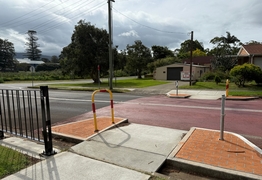Learn how to take action on Council matters
Lynne Strong
27 April 2025, 8:00 AM

At The Bugle, we believe good local democracy starts with people feeling heard, valued and respected.
Whether it's a footpath that goes nowhere, a crossing that makes your heart race, or a flashy new building that forgot to include truly accessible toilets, if something in your community isn’t working, you shouldn’t be left shouting into the void.
And yet, that’s how it often feels.
Maybe you’ve had a proper vent with the neighbours.
Someone’s posted a frustrated comment in the local Facebook group.
And now you’re wondering, what next? How do you actually get Kiama Council to listen?
Believe it or not, there is a way forward.
It’s not always fast, and it doesn’t come with fireworks.
But with persistence, respect and a bit of strategy, it can work.
Here’s how to turn frustration into action.
1. Start with a councillor
Find a councillor who might understand your concern. Give them a call or send a short, respectful email explaining what the issue is, why it matters, and what you’d like to see happen.
Even better, invite them to come and see it.
Councillors are far more likely to act when they’ve visited the surf club that just received a $5 million makeover, only to find the so-called “ambulant” toilet can’t actually be accessed by anyone using a mobility device.
Or when they’ve had to cross Belinda Street, Gerringong, and found themselves in a game of chance with passing traffic.
Grounding the issue in lived experience helps cut through.
2. Speak at a public forum
Council holds a public forum the Monday before each council meeting. If your issue lines up with an item on the agenda, you can register to speak.
You’ll get five minutes. No grandstanding. No theatrics. Just a clear, calm opportunity to share your perspective. And yes, councillors do listen. Some even go back and rewatch the recording.
3. Ask for a Notice of Motion
This is one of the most powerful tools councillors have. A Notice of Motion allows them to formally put an issue on the agenda for discussion and decision.
You can’t submit one yourself, but you can ask a councillor to raise it on your behalf. If it’s supported, Council staff must follow up with a report or action.
This is how change happens, whether it's about green waste services for local businesses, better planning for accessible infrastructure, or policies that actually reflect lived community needs.
4. Build community backing
If the issue affects others, don’t go it alone. Talk to your local P&C, community advocacy group, surf club or sports group. Share your concerns and invite others to join the conversation.
A lone voice might be dismissed as a squeaky wheel. A community chorus is much harder to ignore.
5. Shine a light
Still hitting a wall?
There’s power in visibility.
Write a letter to the editor. Call in to local radio. Raise your issue respectfully on social media, or get in touch with The Bugle.
Public pressure isn’t about stirring up outrage. It’s about shining a spotlight, building understanding and making sure those in power are paying attention.
What to avoid
• Don’t attack Council staff. They implement policy. They don’t make it.
• Don’t send a novel. Keep emails short and focused.
• Don’t wait until the ribbon-cutting. Raise concerns early when there’s still a chance to influence outcomes.
Because local voices matter
The Bugle is committed to a stronger, fairer Kiama.
We know that when people feel confident to speak up, when they know where to go, who to ask, and how the system works, they’re more likely to take part in shaping their community’s future.
You don’t need a title, a platform or permission. You just need to care enough to say something.
And when you do, we’re here to back you.
NEWS




